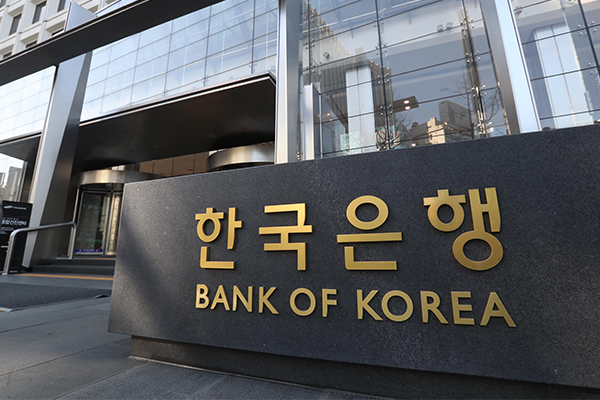SEOUL: South Korea’s central bank slashed its policy rate by a quarter percentage point to a record low of 0.50 per cent Thursday as the country’s economy is expected to grow at the slowest pace in over two decades amid the COVID-19 pandemic, Yonhap news agency reported.
The move came a little over two months after the Bank of Korea (BOK) cut the base rate to 0.75 per cent from 1.25 per cent in its first emergency rate cut since October 2008.
“Economic growth in Korea has slowed considerably,” the BOK said in its statement on the latest monetary policy decision.
“Consumption has remained sluggish and exports have fallen significantly. While the recovery in facilities investment has been subdued, the correction in construction investment has continued.”
The latest rate cut came as the central bank also sharply cut its growth outlook for the local economy, projecting a 0.2 percent contraction this year, compared with a 2.1 percent expansion forecast three months earlier.
BOK Gov. Lee Ju-yeol underscored the possibility of an additional cut to the growth estimate depending the development of the virus outbreak.
“Because the uncertainties regarding the spread of COVID-19 and its impact continue to remain very high, we cannot but review conditions based on assumptions about the future course of COVID-19,” he told a press conference.
The BOK chief said the latest growth outlook is based on what he called the “basic scenario.”
“It is based on an assumption that the pandemic will reach its peak in the second quarter globally, and that there will not be any major second wave of the virus in the country,” Lee said.
The BOK later said the South Korean economy may shrink by as much as 1.8 percent on-year in 2020, followed by 1.6 percent growth next year in a worse case where the peak in the pandemic is delayed and South Korea sees a new wave of COVID-19 infections.
Under better conditions, the local economy may still grow 0.5 percent this year, followed by a 3.8 percent expansion in 2021, it added.
The South Korean economy grew 2 percent in 2019, marking the slowest growth since 2009 when its GDP expanded 0.8 percent in the aftermath of the global financial crisis that began to unfold the year before.
The local economy has only twice contracted on an annual basis in 1980 and 1998, according to the BOK.
The top central banker said Thursday’s decision to slash the key rate was by unanimous vote.
The BOK noted COVID-19 may continue to hurt the local economy down the road.
“The board expects that domestic economic growth will remain sluggish for some time due to the impact of the COVID-19 pandemic. (Gross domestic product) growth is projected to fall considerably below the February forecast of 2.1 percent to around 0 percent, and uncertainties around the future path of GDP growth are also judged to be very high,” the statement said.
South Korea’s exports grew 4.5 percent from a year earlier in February, followed by a 0.2 percent on-year drop the following month.
In April, however, outbound shipments plunged 24.3 percent, leading to the country’s first trade deficit in 99 months.
Against such a backdrop, the state-run Korea Development Institute earlier revised down its own growth outlook to 0.2 percent from the previous 2.1 percent, while the International Monetary Fund forecast a 1.2 percent on-year contraction for Asia’s fourth-largest economy in its latest report published April.
The BOK chief said the bank is fully prepared to take any additional necessary steps, adding all options are on the table, including non-monetary policy measures.
“The BOK may consider non-monetary policy steps should additional easing be necessary. We are making preparations to take any necessary steps based on changes in conditions with all available steps still on the table,” he said.
Lee noted the latest rate reduction may have brought the policy rate much closer to the so-called lower boundary, but insisted such a boundary continues to shift on the policy rate of other major economies, as well as conditions in the financial market.
Thursday’s monetary policy decision is in line with market consensus.
In a recent poll conducted by Yonhap Infomax, the financial news arm of Yonhap News Agency, 12 of 18 experts surveyed anticipated the BOK to further slash the key rate this month. The BOK stood pat in April.
Those who expected a rate cut cited the need to further insulate the economy from the COVID-19 pandemic, which has been spreading at an increasing rate globally since the BOK’s emergency rate reduction, delivered on March 16.
Meanwhile, the BOK said one of its monetary policy board members, Cho Yoon-je, was excluded from Thursday’s vote, due to his ownership of stocks that is currently being reviewed for a possible conflict of interest.
Cho, a former ambassador to the United States, began his term at the seven-member BOK board in April, along with two other new members and a member appointed to a second term.
– BERNAMA

